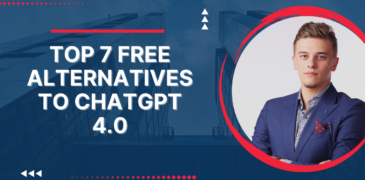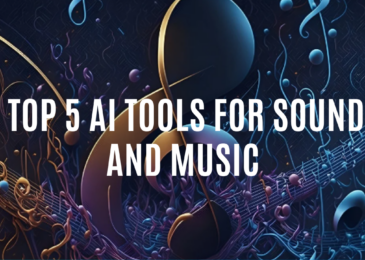In a world where conversational AI, exemplified by ChatGPT 4.0, takes center stage, the quest for free and equally adept alternatives is gaining momentum. While ChatGPT 4.0 showcases the pinnacle of artificial intelligence in language modeling. There exists a realm of options that not only operate without cost but also excel in generating human-like text. These alternatives leverage open-source technologies and community-driven initiatives. This offering users compelling conversational experiences sans the necessity for a subscription. In this exploration, we’ll navigate through the top 7 free alternatives to ChatGPT 4.0, presenting a diverse array of choices for those seeking advanced language models without a hefty price tag. From collaborative ventures to individual endeavors, these alternatives underscore the widening accessibility of AI-driven conversation technologies.
1.Merlin:
Merlin, a groundbreaking AI-powered Chrome extension, brings the impressive capabilities of ChatGPT to users across various online platforms. Boasting a user-friendly interface and a range of features, Merlin enhances the ChatGPT experience, allowing users to seamlessly interact with the AI model.
Notably, Merlin’s standout feature is its versatility, enabling users to tap into ChatGPT’s power on any website through a straightforward keyboard shortcut (Ctrl + M or Cmd + M). This accessibility extends to popular platforms like Google Search, Gmail, LinkedIn, and GitHub, providing a cohesive and efficient user experience. Moreover, Merlin empowers users to effortlessly compose emails, engage on social media, and summarize websites.
The extension has earned widespread acclaim, with users commending its ability to streamline tasks, enhance productivity, and unleash creativity. Professionals at esteemed tech firms and universities place trust in Merlin, highlighting its reliability and security through certifications such as SOC2, GDPR, and ISO 27001.
As evident from positive testimonials, including endorsements from influencers like Sumner Hobart and Obscurious, Merlin has become an indispensable tool for those looking to maximize the potential of ChatGPT. Its ongoing enhancements and user-friendly integration directly into browsers position Merlin as an essential extension for anyone aiming to optimize their interaction with ChatGPT across diverse online landscapes.
2.Poe (Platform for Open Exploration)
Poe (Platform for Open Exploration), a service developed by Quora and launched in December 2022, represents a pioneering approach to interactive AI-driven communication. It provides users with the ability to pose questions and receive answers from a variety of AI bots built upon expansive language models (LLMs), including those developed by OpenAI, the creators of ChatGPT, and other companies like Anthropic. With a subscription option, Poe offers unlimited use for lightweight chatbot applications such as ChatGPT and extends access, albeit with certain limitations, to more sophisticated artificial intelligence models like GPT-4 and Claude2.
Initially introduced as an iOS-exclusive text messaging app on December 21, 2022, Poe operated on an invite-only basis before opening its doors to the public on February 4, 2023. The platform expanded its reach to desktop browsers on March 4, 2023, broadening accessibility.
Poe supports an array of chatbots from different providers, including OpenAI’s Assistant (formerly Sage), ChatGPT, and GPT-4, each powered by various iterations of language models. Anthropic’s contributions include Claude-2-100k and Claude-instant, while Meta’s Llama-2 series and Google’s PaLM are also among the supported bots.
This innovative platform is reshaping the landscape of AI interaction, offering users diverse options for engaging with cutting-edge language models and fostering a dynamic exchange of information through intelligent bots. Poe’s evolution from a closed iOS app to a widely accessible desktop platform reflects the growing demand for AI-driven conversational experiences.
3.Bing AI
Microsoft Copilot, initially introduced as Bing Chat on February 7, 2023, stands at the forefront of Microsoft’s innovative AI-driven offerings. Powered by the Microsoft Prometheus model, built on the foundational large language model (LLM) GPT-4 from OpenAI, Copilot has undergone fine-tuning through a combination of supervised and reinforcement learning techniques. This chatbot is a multifaceted tool capable of serving as a chat assistant, generating diverse content from poems to reports, providing insights on open web pages in Microsoft Edge, and even using its Image Creator to design logos, drawings, and artwork based on textual prompts.
Copilot’s conversational interface, reminiscent of ChatGPT, supports major languages and dialects, making it a versatile tool. While its integration is primarily designed for Microsoft Edge, Skype, or the Bing app, it can function through various channels, including a dedicated webpage or built-in app features.
Despite its potential, concerns have been raised about hallucinations and the potential for bias in Copilot. Microsoft has responded by emphasizing its commitment to responsible development, learning from experiences with Bing Chat, and implementing measures to address concerns, such as refining training data and employing tools to detect and rectify data bias.
With plans to integrate Copilot into Windows 11, Microsoft is poised to expand its impact on user productivity by providing direct access through the taskbar. Moreover, the introduction of Copilot for Microsoft 365 further positions this AI tool as a transformative force in enhancing productivity across applications like Word, Excel, PowerPoint, Outlook, Teams, and more, emphasizing its potential to reshape how users work and collaborate within the Microsoft ecosystem.
4.Google Bard
Google Bard emerged as a conversational generative AI chatbot developed by Google, strategically introduced in response to the success of OpenAI’s ChatGPT. Launched in March 2023, Bard, initially powered by the LaMDA family of large language models (LLMs) and later transitioning to PaLM, aimed to secure Google’s standing in the rapidly evolving field of AI-driven conversational agents.
The announcement of Bard in February 2023 was characterized by Google’s urgency to compete with ChatGPT and Microsoft’s Bing Chat. Despite a somewhat underwhelming livestream showcasing Bard, the chatbot was opened for early access in March, with a limited release in the U.S. and the UK. The rollout faced challenges, including criticism for inaccuracies during demonstrations and concerns about the rushed nature of the launch.
Despite challenges and criticisms, Google continued to refine Bard, integrating it into various products, introducing extensions, and addressing concerns about privacy and misinformation. The ongoing evolution of Bard underscored Google’s commitment to staying competitive in the dynamic landscape of conversational AI.







